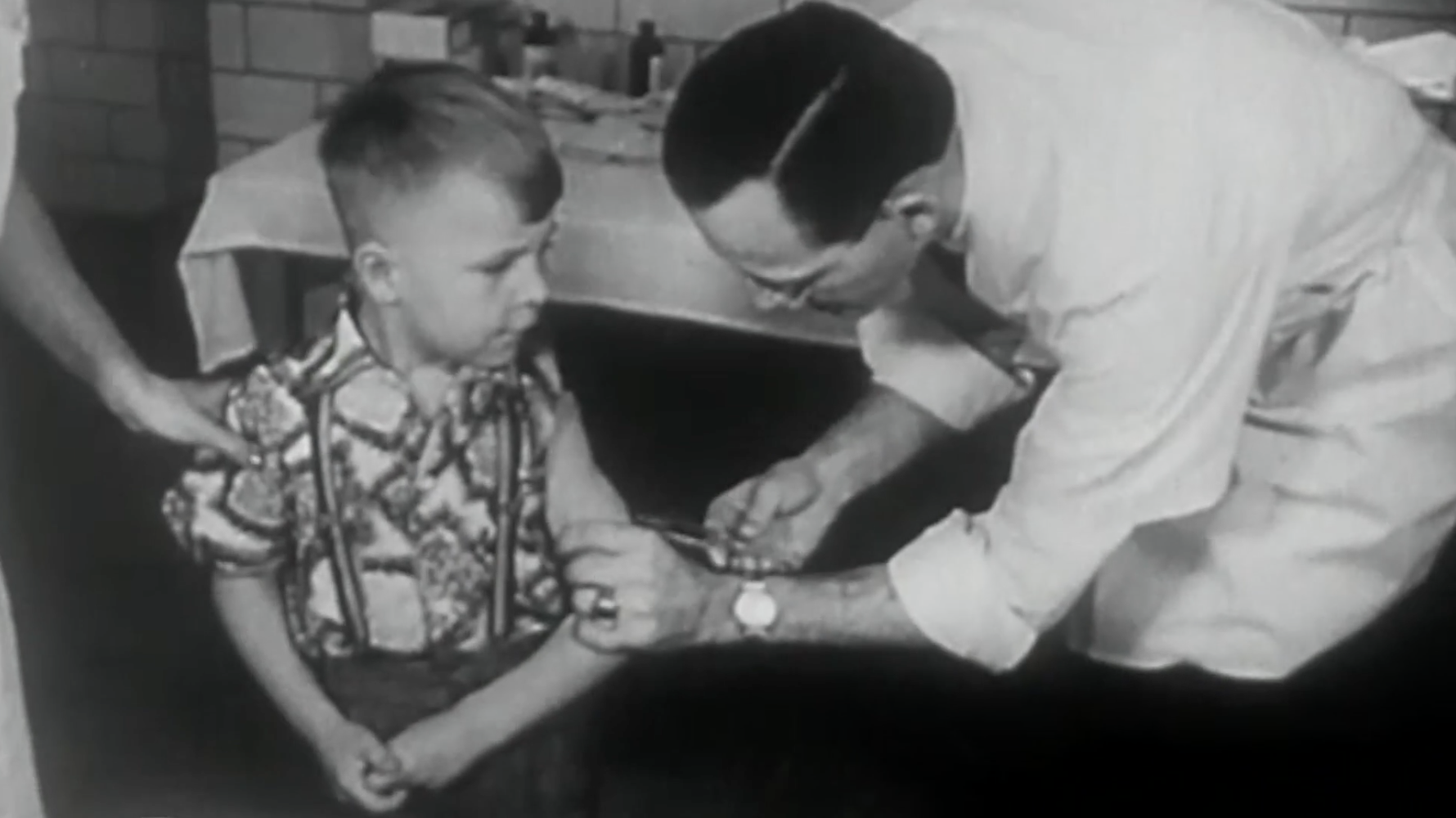Watch the Emmy winning history-on-location series
Join Ed Ayers — award-winning historian and co-host of the hit podcast BackStory — as he travels to places that define the most misunderstood parts of America’s past.
Visit sites Americans struggle to discuss, and learn from National Park Service interpreters, museum educators, artists, and activists how they engage a diverse public with the fullness of our nation’s history.
A PUBLIC CALAMITY →
What happens when you re-open too soon? Richmond, Virginia's experience with the 1918 flu offers lessons for today. Ed speaks to a newspaper archivist, a National Park Service ranger, and a museum curator. Personal stories reveal the ways that health crises exacerbate existing inequities, and the dangers of re-opening too soon.
POLIO ON TRIAL →
Scientists are racing to develop potential vaccines. Labs are preparing for widespread testing. Families are desperate for an answer to a public health crisis. This was the story in 1954, when a new vaccine to prevent polio persuaded the parents of more than a million children to join a nationwide trial.
Episode 1
the revolutions →
What does “freedom” mean to those outside the halls of power — and what did it mean during the American Revolution? Ed visits sites in Boston and Philadelphia to put that question to curators, museum educators, a playwright, and a tribal preservation officer. He learns about the ways in which women, Native Americans, and African Americans made the words of the Revolution come true in their lives.
episode 2
RED CHICAGO →
For a week in 1919, long-simmering tensions between white and black residents in Chicago erupted in violence. Its aftermath shaped laws and housing for generations. Ed visits Chicago during the 100th anniversary of what is known as the “Red Summer.” He meets a poet, performance artist, museum educator, and young people who are creating living memorials to a long-ignored past.
EPISODE 3
TRANSCONTINENTAL →
High in the Utah desert in 1869, a ceremonial golden spike marked the completion of the first transcontinental railroad. On the 150th anniversary of this feat, Ed speaks with a National Park Service ranger, a poet, a descendant of a Chinese American railroad builder and a Native American tribal leader. Together, they paint a portrait of technological triumph—and its human and environmental costs.
EPISODE 4
SCHOOL INTERRUPTED →
In the rural district of Prince Edward County, Virginia, young people staged a strike in 1951—an effort that culminated in the Supreme Court’s decision in Brown v. Board that outlawed segregated schools. Ed meets participants of that strike, as well as a museum educator, author, and librarian. He learns about the resilience of local black families when segregationists closed public schools for five years—and how that legacy lives on today.
Episode 1
freedom’s fortress →
At Virginia’s Fort Monroe, Ed explores a remarkable place: the spot where slavery began in British North America, and the site where it began to unravel during the Civil War. From one of the newest National Park Service sites to a historically-minded brewery and more, Ed learns from a diverse cast of people engaging visitors with defining moments in our national past.
episode 2
the fire of a movement →
On March 25, 1911, New York City’s Triangle Shirtwaist Factory burst into flames, and 146 workers — nearly all young women, many of them teenage immigrants — perished. Ed visits the building and learns how public outcry inspired workplace safety laws that revolutionized industrial work nationwide. Descendants and activists show him how that work reverberates today.
EPISODE 3
LINES IN THE SAND →
Texas has long been a place of contentious borders and cross-cultural exchange. Six national flags have flown over Texas since the 1500s, starting with European contests for the land that followed 10,000 years of Native American history there. From Spanish missions, to a French shipwreck, to a former sugarcane plantation, Ed visits to ask: How did Texas become Texas?
EPISODE 4
A GRAVE INJUSTICE →
Shortly after the attack on Pearl Harbor in December 1941, the U.S. military and the FBI arrested more than 110,000 Americans of Japanese ancestry. Taken to desert camps and confined for months or years, many of these Americans lost their homes and businesses. Ed visits the largest of these camps, now a National Park Service site — and meet those keeping memory alive.

















